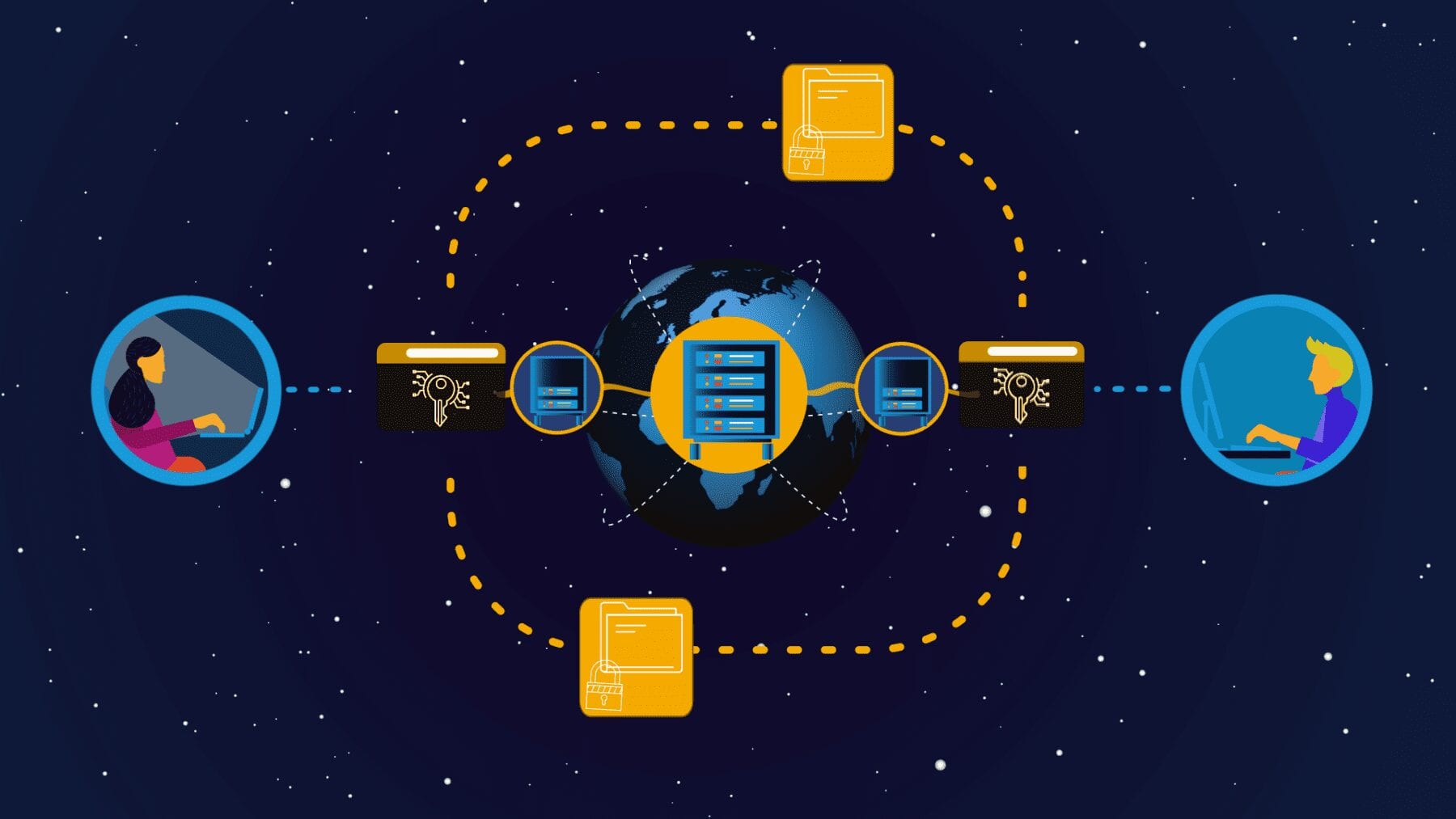
The graph shows Vimeo’s bandwidth usage before and after implementing the algorithm of Mikkel Thorup et al.
An elegant new algorithm developed by Danish researchers can significantly reduce the resource consumption of the world’s computer servers. Computer servers are as taxing on the climate as global air traffic combined, thereby making the green transition in IT an urgent matter. The researchers, from the University of Copenhagen, expect major IT companies to deploy the algorithm immediately.
One of the flipsides of our runaway internet usage is its impact on climate due to the massive amount of electricity consumed by computer servers. Current CO2 emissions from data centres are as high as from global air traffic combined – with emissions expected to double within just a few years.
Only a handful of years have passed since Professor Mikkel Thorup was among a group of researchers behind an algorithm that addressed part of this problem by producing a groundbreaking recipe to streamline computer server workflows. Their work saved energy and resources. Tech giants including Vimeo and Google enthusiastically implemented the algorithm in their systems, with online video platform Vimeo reporting that the algorithm had reduced their bandwidth usage by a factor of eight.
Now, Thorup and two fellow UCPH researchers have perfected the already clever algorithm, making it possible to address a fundamental problem in computer systems – the fact that some servers become overloaded while other servers have capacity left – many times faster than today.
“We have found an algorithm that removes one of the major causes of overloaded servers once and for all. Our initial algorithm was a huge improvement over the way industry had been doing things, but this version is many times better and reduces resource usage to the greatest extent possible. Furthermore, it is free to use for all,” says Professor Thorup of the University of Copenhagen’s Department of Computer Science, who developed the algorithm alongside department colleagues Anders Aamand and Jakob Bæk Tejs Knudsen.
Soaring internet traffic
The algorithm addresses the problem of servers becoming overloaded as they receive more requests from clients than they have the capacity to handle. This happens as users pile in to watch a certain Vimeo video or Netflix film. As a result, systems often need to shift clients around many times to achieve a balanced distribution among servers.
The mathematical calculation required to achieve this balancing act is extraordinarily difficult as up to a billion servers can be involved in the system. And, it is ever-volatile as new clients and servers join and leave. This leads to congestion and server breakdowns, as well as resource consumption that influences the overall climate impact.
“As internet traffic soars explosively, the problem will continue to grow. Therefore, we need a scalable solution that doesn’t depend on the number of servers involved. Our algorithm provides exactly such a solution,” explains Thorup.
According to the American IT firm Cisco, internet traffic is projected to triple between 2017 and 2022. Next year, online videos will make up 82 percent of all internet traffic.
From 100 steps to 10
The new algorithm ensures that clients are distributed as evenly as possible among servers, by moving them around as little as possible, and by retrieving content as locally as possible.
For example, to ensure that client distribution among servers balances so that no server is more than 10% more burdened than others, the old algorithm could deal with an update by moving a client one hundred times. The new algorithm reduces this to 10 moves, even when there are billions of clients and servers in the system. Mathematically stated: if the balance is to be kept within a factor of 1+1/X, the improvement in the number of moves from X2 to X is generally impossible to improve upon.
As many large IT firms have already implemented Professor Thorup’s original algorithm, he believes that industry will adopt the new one immediately – and that it may already be in use.
Original Article: Danish invention to make computer servers worldwide more climate friendly
More from: University of Copenhagen
The Latest Updates from Bing News & Google News
Go deeper with Bing News on:
Resource consumption of computer servers
- Are VPNs Legal To Use?
Are virtual private networks legal to use? Discover if VPNs are legal, restricted or banned in your geolocation and what activities are legal vs. illegal when using a VPN.
- Windows Server 2025 Is (Almost) Here
Many more new features than last release, explained in detail by Paul Schnackenburg: 'Maybe Microsoft has realized that not everything is in the cloud, and giving attention to Server is important.' ...
- How to Host a Website
Open the management area for your domain. Typically, this is accessed by logging into your account and clicking on the domain you want to manage. Scalability: Your web host should be able to ...
- Degrowth Is the Only Sane Survival Plan
Something must be up. Otherwise, why would scientists keep sending us those scary warnings? There has been a steady stream of them in the past few years, including “World Scientists’ Warning of a ...
- Q&A: Georgia Tech dean details why the school needed a new AI supercomputer
Georgia Tech partnered with Nvidia to roll out its first supercomputer so students can experiment with AI and machine learning to better prepare for a job market where those skills are now critical to ...
Go deeper with Google Headlines on:
Resource consumption of computer servers
[google_news title=”” keyword=”resource consumption of computer servers” num_posts=”5″ blurb_length=”0″ show_thumb=”left”]
Go deeper with Bing News on:
Server overload
- 'Helldivers 2' in review bombing uproar as Sony introduces new mandatory account requirements on PC players
Sony ignites controversy among Helldivers 2 fans by re-adding a requirement for PSN and Steam accounts to be linked together by June 4, otherwise they can't play the game anymore.
- 'Helldivers 2' in review bombing uproar as Sony introduces new mandatory account requirements on PC players (UPDATED)
Helldivers 2 originally was slated to require a PSN account, but Arrowhead claims they temporarily removed the requirement due to server overload. Fans are not happy with this announcement as this ...
- Best proxy of 2024
Of course, not all providers of public data may want their webpages scraping. For one, it increases the server load so the cost of scraping is billed to the host, not the proxy provider.
- Microsoft: April Windows Server updates cause NTLM auth failures
Microsoft has confirmed customer reports of NTLM authentication failures and high load after installing last month's Windows Server security updates.
- Sea of Thieves PS5 release date, time, pre-load and server downtime
After launching in early access for Premium Edition owners, Sea of Thieves makes its full PS5 debut, and just in time for Season 12.
Go deeper with Google Headlines on:
Server overload
[google_news title=”” keyword=”server overload” num_posts=”5″ blurb_length=”0″ show_thumb=”left”]










